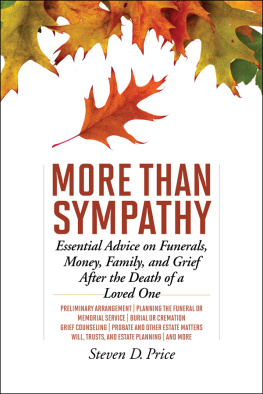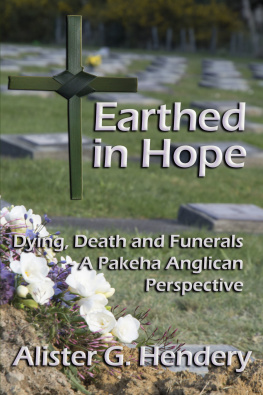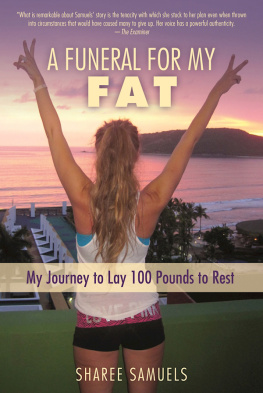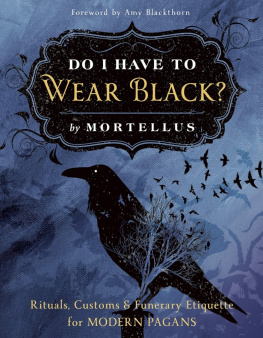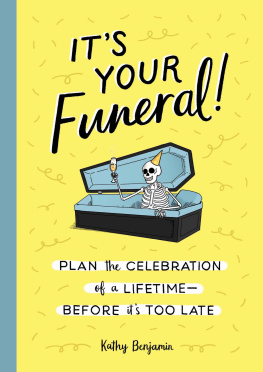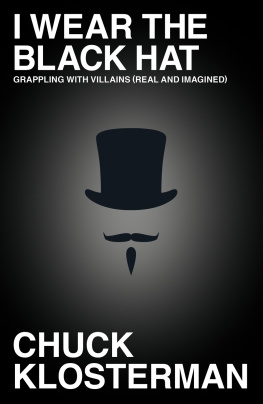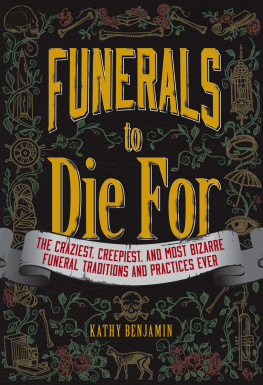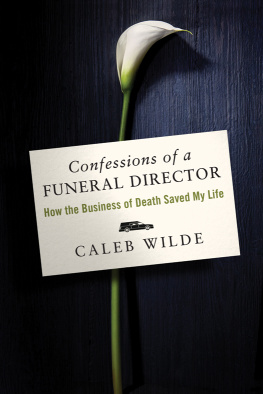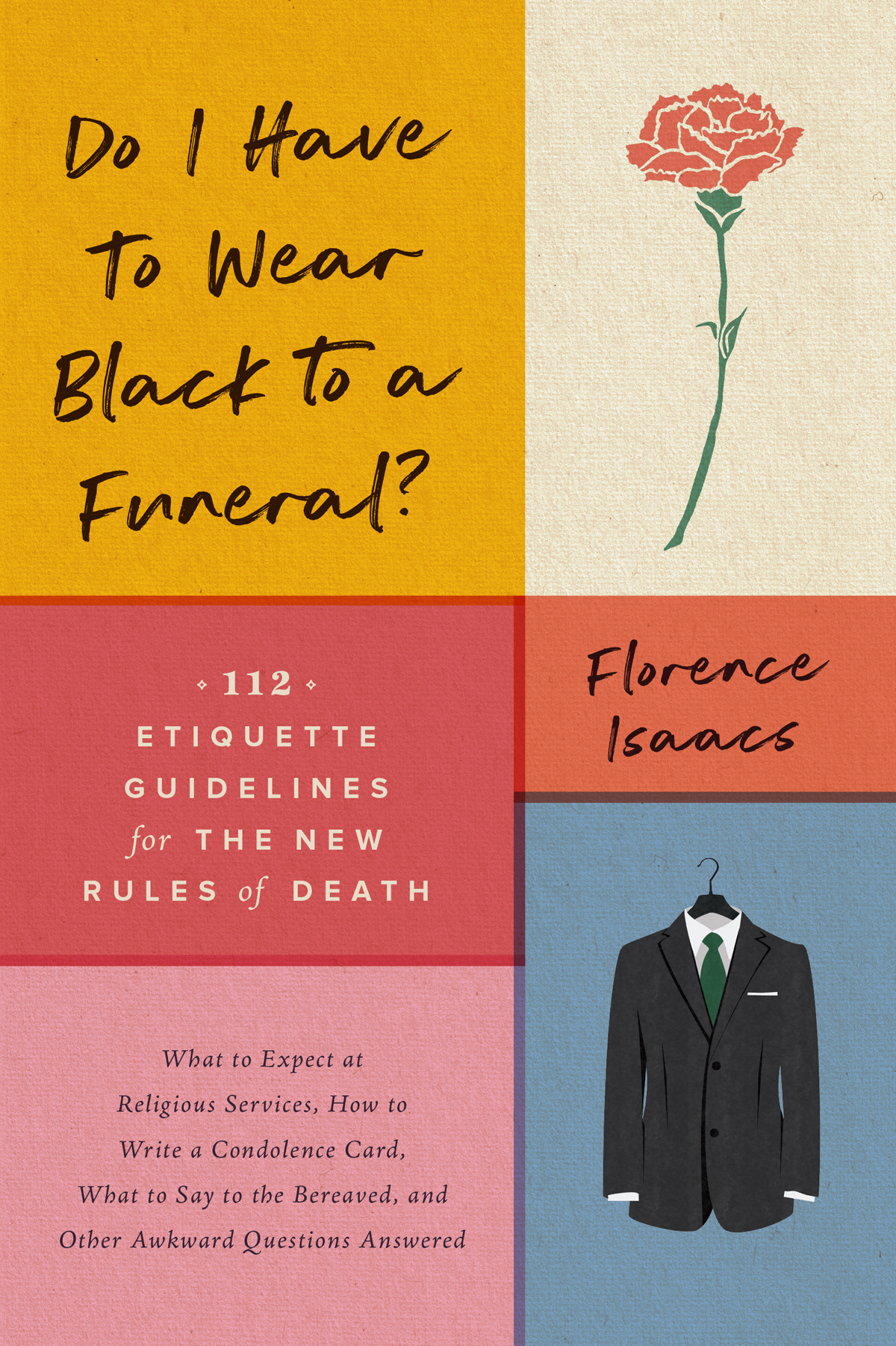Contents
Guide
Page List
Do I Have to Wear Black
to a Funeral?
112 Etiquette Guidelines for
the New Rules of Death
Florence Isaacs

CONTENTS
This book would not have been possible without my agent, Linda Konner, who conceived of the concept originally. Linda has believed in and supported me through the years. Every writer should have a Linda.
Andrew Isaacs and Jonathan and Katie Isaacs have been sounding boards and cheerleadersalways there when I need them.
I also thank a new friend, Beverly Nadler, who knows all about loss, and two old ones: Elaine Nathan, whose ideas and energy were extremely helpful, and Martha Halperin, who has always been there for me with her humanity and wisdom.
Im so lucky to have all of you.
Should I call (or call on) the bereaved as soon as I hear of a death?
In some communities, phone calls and visits immediately after a death are customary expressions of support. Everyone rallies round. However, there can be a thin line between support and intrusion. Calling can also be a mistake if the bereaved are not close to you, especially if the death is unexpected. When a loved one dies out of the blue, the family may well be in shock and barely able to function. They may not wish to talk to casual acquaintances at this time. When in doubt, one thing is certain: You cant go wrong with a condolence note or card.
For example, a couple who lost a teenaged child hated such calls and wanted to be left alone, except for their nearest and dearest. Yet people with the best of intentions called daily. One relationship blew up as a result. The bereaved felt assaulted. The callers felt unappreciated.
It can be tricky to navigate such circumstances. Due to technology, we are living through an extraordinary upheaval in social mores surrounding deaths. Today, you can accomplish an ongoing connection by writing or emailing instead of calling, as in Just checking in to say Hi. You dont have to answer this. Texting is more immediate, but I wouldnt use it unless you are very close to the bereaved. It can backfire and feel like an imposition.
How should I spread the word about a death to others who know the person?
If the deceased is a relative, friend, or coworker, then the job is simple. Both of you know the deceased. Id get to the point directly right away with something like, I have bad news. Gregory has died. The expected communication about detailsonline or in personwill automatically ensue. But follow the lead of the family. Do not post about a death until the bereaved have announced it online. Would you want your aunt to find out your mother has died from strangers on Facebook?
Where can I find information about funeral details? I have learned someone has died and I wish to attend, if possible.
They will probably be included in the obituary, if there is one. If you havent seen the obituary or dont know if one exists, you can look it up on Legacy.com or similar sites. You can also ask friends or family of the deceased for information about the funeral. If you know the name of the funeral home (if one is involved), you can call and request the details about funeral time, whether the family will receive people before or after the service, and other guidance. The obituary or funeral home will provide information such as the date and time of service, whether the burial will take place after the funeral, and where.
If information isnt included in the obituary, the funeral is probably privatein other words, it is limited to family and others who have already been notified. Why does the family make this decision? It may be due to limited finances. Or the family may want privacy. Or the deceased may have made the decision beforehand. Regardless, this is a time to respect the familys (or deceaseds) wishes and stay home. You certainly can, however, send a condolence note or card. In rare cases, a private funeral is also a way to bar unwelcome guests, such as an unstable ex-spouse or others. Its a lot easier to withhold the information from the public than it is to deal with calling in the police to eject someone unwanted.
I hate funerals, but I must go occasionally. How can I make the experience less of an ordeal?
First, understand that it isnt just you. Most of us feel uncomfortable about attending a funeral or memorial service because its about death. We dont want to be reminded that it happens to all of us sooner or laterthat nobody escapes. Someone elses death shatters our deep-down illusions that were going to live forever. Yet there are ways to arrive prepared.
Whatever you do, dont show up cold turkey, without giving a thought to what has happened, how you feel about it, and who you are likely to meet and talk to there. First, do your .)
If youre attending the service alone, consider possible scenarios for engaging others who might be sitting or standing next you. Make a list of possible openers. Yes, its hard for many of us to start conversations with strangers. Yet it helps build confidence to inquire, How are you connected to the bereaved (or the deceased)? Ive used this line many times and find that people are more than happy (and even relieved) to talk. Chances are, they feel as uncomfortable and anxious as you do and will welcome the distraction. You can start some fascinating conversations this way as you both share information and memories. Listen to the response and comment on it, if appropriate, to encourage continuing the conversation. Or add something like, I went to high school with Joe. Or, I was a volunteer at a soup kitchen with Mary.
Whats the difference between a funeral and a memorial service?
The body is present at a funeral. There is no body at a memorial service, either because the family prefers it that way (perhaps because the body is disfigured or emaciated after a long illness) or because the remains were never found (as in war situations or some plane crashes). Another defining feature: The timing of a memorial service is flexible, which can be critical these days when families are often scattered all over the country (or the world). A memorial service can be held at any time as a convenience for far flung family members and friends. The obituary may say, A private memorial service will be held at a later date. Or the wording may specify the service will be held in a given month. There may be more than one service in different localities to accommodate friends and relatives.
A memorial service might also be more casual than a funeral and might be held in a hotel or other space. It is more likely to be a celebration of life. For example, a memorial service for a cabaret singer included films of some of her performances, and left attendees teary-eyed.
When is attending a funeral or memorial service a mustand when is it optional?
Sometimes the decision is clear-cut, but not always. It helps to ask yourself, What are good and sufficient reasons to attend? For example, some of us do ourselves a disservice by staying home. Showing up can provide big benefits for our emotional health and our souls. Funerals are never easy, but they are a time to think of the deceaseds impact on us. The service can also help us reflect on ourselves and where we are in our own lives. They can tune us in to whether we may wish to make adjustments. These issues tend to get lost in our high-speed, constantly working world. Meaning is hard to find when were glued to our cell phones. Funerals can be an opportunity to realize were finite as we grapple with the idea of deathto reflect on what it means to have this one life and how to live it.


